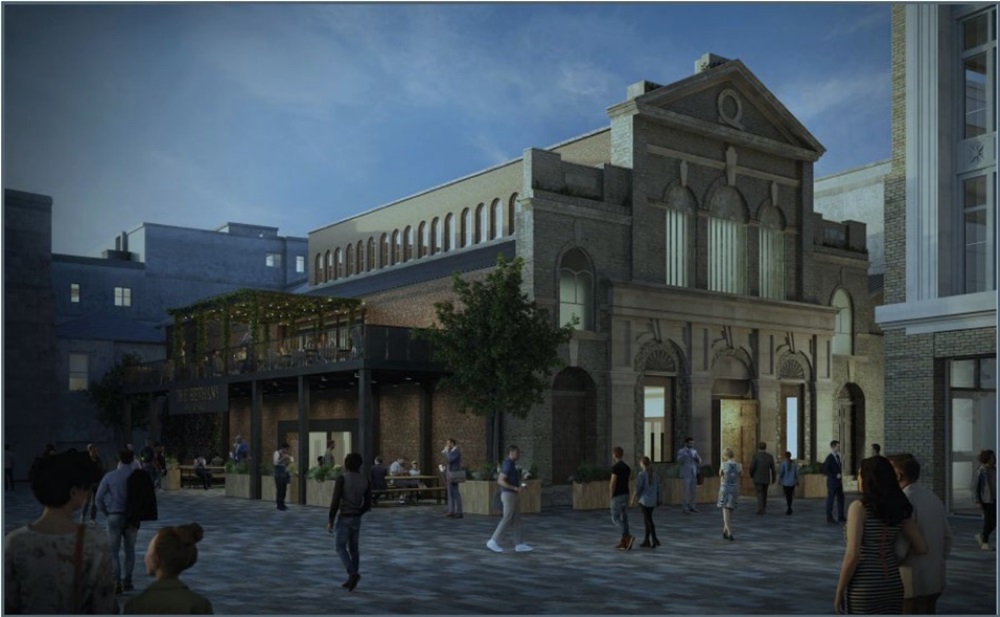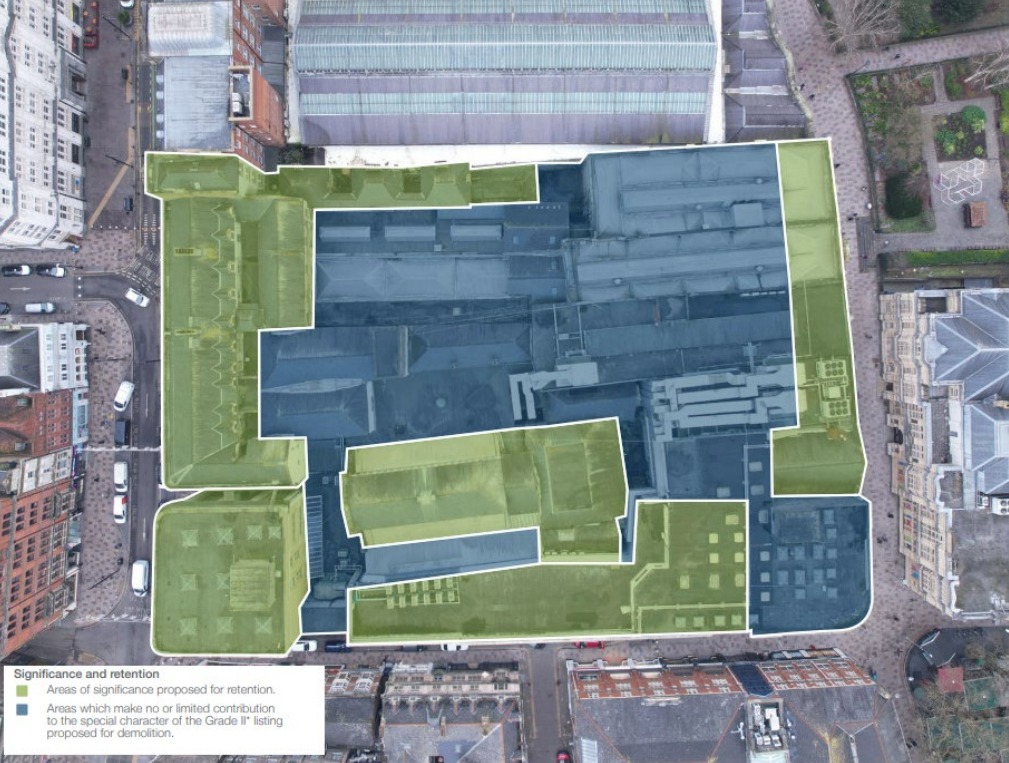Redevelopment of iconic department store to take major step forward

Ted Peskett, local democracy reporter
The redevelopment of a former iconic department store is set to take a major step forward in the coming days.
Cardiff Council’s planning committee will this week be asked to approve the next phases of a scheme which will see the former Howells store on St Mary Street transformed into bars, restaurants, offices, shops and apartments.
Approval of phases two and three of the scheme will see the restoration of the Bethany English Baptist Chapel on site and some of the buildings around it.
Engulfed
The chapel, which was built in 1807, eventually became engulfed by the Howells department store.
It was only in March this year that the Howells building, occupied by the Cardiff branch of House of Fraser, closed its doors as a department store for the last time.
The buildings proposed for demolition are the areas of the site described in a council planning report as areas “which make no or limited contribution to the special character of the Grade II* listing”.

Phase one of the development relates to the Percy Thomas building on the corner of Wharton Street and St Mary Street.
Permission was granted in 2019 for change of use of the building and in 2023 for a rooftop extension which will allow for a rooftop bar.
Proposals for the Wharton Street building to the south of the site include bars and restaurants, 61 studio apartments on the upper floors and a four-storey roof extension.
If approved, the next phase of the project will also see a change of use at the Bethany Chapel building from retail to a food market or restaurant.
Public spaces
The area created by the demolition of the surrounding buildings will be turned into a new public space and an opportunity to connect the site to Cardiff Market.
Cadw raised no objections to the development, but Glamorgan Gwent Archaeological Trust (GGAT) has called for archaeological mitigation as part of the scheme, pointing out that the development site lies within the medieval town boundary.
The former course of the River Taff prior to its changes in the 19th century flowed just to the west of St Mary Street and Wharton Street was one of the routes to the river.
Historic mapping of the area shows there were buildings at the application site and a council report also highlights that there were burials in the chapel area.
It states: ” It remains [GGAT’s] opinion that the proposed development may encounter archaeological remains related to early medieval and medieval settlement and activity, as well as evidence of 19th century activity, potentially including human remains.”
The archaeological trust has recommended a condition which would require a programme of archaeological work in the form of a watching brief during the groundworks.
Phases four and five of the redevelopment relate to the St Mary Street frontage, the south-east corner building fronting onto The Hayes and the Trinity Street buildings.
These form part of a separate planning application which will be decided at a later date.
Support our Nation today
For the price of a cup of coffee a month you can help us create an independent, not-for-profit, national news service for the people of Wales, by the people of Wales.





